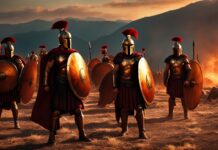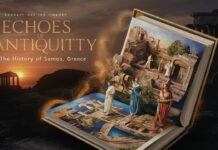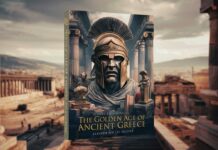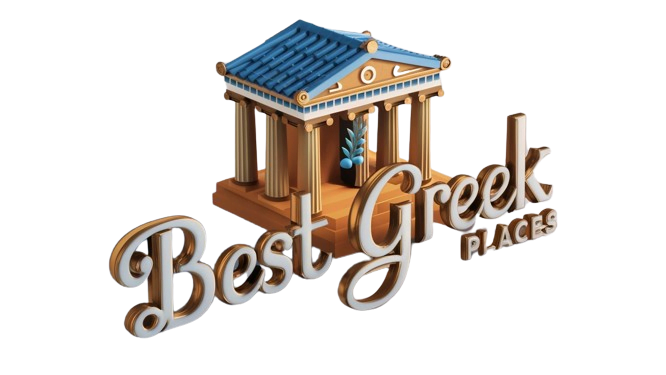Discovering Ancient Greece: A Journey Through Time
Ancient Greece stands as a monumental chapter in human history, a time that laid the groundwork for modern philosophy, democracy, art, and science. Every stone of its historical cities whispers tales of triumph, struggle, and creativity, making it a captivating topic for scholars and enthusiasts alike. Have you ever wondered what life was like in this remarkable civilization?
A Glimpse into Greek Daily Life
Life in Ancient Greece was a tapestry woven with vibrant threads of culture, tradition, and innovation. The Greeks engaged in daily chores, social gatherings, and grand celebrations that echoed the rhythm of their agricultural calendars. Divided into city-states, each with its unique identity, the daily routines varied significantly, yet a common thread of community intertwined their experiences.
The Significance of City-States
The concept of the city-state, or ‘polis,’ was pivotal in Ancient Greece. Each polis functioned independently, harboring its own government, laws, and customs. From Athens, the cradle of democracy, to Sparta, renowned for its military prowess, these city-states sculpted the political landscape of the era. This diversity fostered a healthy competition that propelled advancements in philosophy, science, and art.
Religion: A Way of Life
Religion permeated every aspect of life in Ancient Greece. The Greeks honored a pantheon of gods and goddesses, each representing various human experiences and natural phenomena. Rituals and festivals were conducted to appease these deities, ensuring favor and prosperity. The Olympic Games, originally a festival for Zeus, exemplified how integral religion was to social life and collective identity.
Philosophy: The Pursuit of Wisdom
The philosophical pursuits of Ancient Greece laid the foundation for Western thought. Thinkers such as Socrates, Plato, and Aristotle challenged existing paradigms and encouraged intellectual curiosity. Their dialogues explored ethics, politics, and existence, fostering a culture that revered critical thinking and debate—elements crucial to the evolution of modern philosophy.
Education and the Young Minds of Greece
Education was highly valued in Ancient Greek society, particularly in city-states like Athens. Young boys embarked on a rigorous educational journey focusing on rhetoric, mathematics, music, and physical training. This emphasis on cultivating well-rounded citizens prepared them not only for individual success but also for meaningful contributions to the communal life of their polis.
The Role of Women in Ancient Society
Contrary to popular belief, women in Ancient Greece held varied roles depending on the city-state. While Athenian women were often confined to domestic duties, Spartan women enjoyed a degree of independence and education rarely seen in other societies of the time. This divergence illustrates the complexities of gender roles and the multifaceted nature of ancient life.
Economic Foundations: Trade and Agriculture
The economy of Ancient Greece thrived on agriculture, commerce, and trade. The fertile plains and mild climate facilitated the cultivation of grapes, olives, and grains, while the Aegean Sea expanded their reach through maritime trade connections. This economic vitality supported not only local survival but also the splendor of cultural achievements during the period.
Arts and Architecture: A Legacy of Beauty
Greek architecture and arts reflect a profound appreciation for beauty and form. Temples dedicated to gods, like the Parthenon in Athens, showcase architectural brilliance and artistic finesse. Greek art, with its emphasis on realism and idealism, continues to influence modern artistic endeavors, encapsulating the spirit of a civilization that revered aesthetics.
Theatre: A Cultural Institution
Theatre emerged as a vital cultural institution in Ancient Greece, with playwrights like Aeschylus, Sophocles, and Euripides shaping its landscape. The dramatic arts served as both entertainment and a medium for societal critique, inviting audiences to reflect on moral dilemmas and the human condition. Festivals such as Dionysia celebrated these theatrical performances, blending cultural pride with artistic expression.
Health and Medicine: An Ancient Perspective
The approach to health and medicine in Ancient Greece was vastly different from today’s understanding. Although they lacked modern medical knowledge, practitioners like Hippocrates laid the groundwork for future medical ethics. The Greeks viewed health holistically, considering diet, lifestyle, and even spirituality as integral aspects of wellbeing.
Conflict and War: The Struggle for Power
Ancient Greece was often marked by conflict, both internal and external. The relentless battle for power among city-states led to significant historical events such as the Peloponnesian War and the rise of figures like Alexander the Great. These conflicts shaped not only the borders of Greece but also the evolution of its culture and society.
The Influence of Greek Mythology
Greek mythology is an enduring aspect of this ancient civilization, filled with intriguing tales of gods, heroes, and mythical creatures. These stories not only entertained but were also essential in explaining natural phenomena and instilling moral values. Today, they continue to inspire modern storytelling and art.
Embracing Ancient Greece Today
Exploring Ancient Greece opens a portal to understanding foundational elements of contemporary life. From government principles to artistic endeavors, the influence of this ancient civilization remains potent in our society. By delving into this rich history, we can appreciate the values, challenges, and triumphs that have shaped our world.
Join the Journey of Discovery
Want to immerse yourself in the fascinating story of Ancient Greece? Join the Captivating History Book Club for in-depth analysis and discussions. Additionally, for those captivated by mythology, we’re offering a free ebook bundle that covers Greek, Norse, and more. Don’t miss this opportunity to explore the legacies of a civilization that continues to inspire and educate.
This journey through ancient Greece reveals not just a bygone era but also lessons that resonate today. By understanding our past, we can better appreciate our present and shape a brighter future.




















